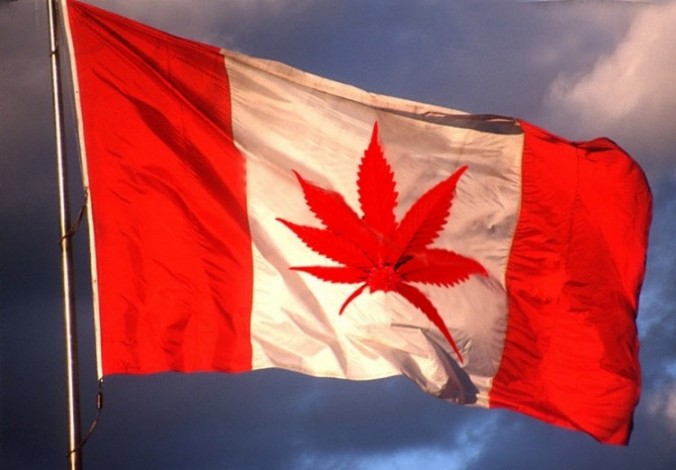Canada to introduce legislation in 2017 to legalize marijuana
OTTAWA — The Canadian government announced Wednesday that it will introduce legislation next year to decriminalize and legalize the sale of marijuana, making Canada the first G7 country to permit widespread use of the substance.
The announcement was made by Canada’s health minister, Jane Philpott, at a U.N. drug conference in New York. It follows through on a promise made during Prime Minister Justin Trudeau’s successful election campaign last fall.
Philpott said details of the legislation are being worked out, but she vowed that the government “will keep marijuana out of the hands of children and profits out of the hands of criminals.”
With the Liberals holding a majority in the House of Commons, the marijuana legislation is likely to pass. The path toward the legalization of marijuana is the latest in a string of policy announcements from the 44-year-old Trudeau that have moved Canada to the left after a decade of Conservative Party rule, including last week’s unveiling of legislation to permit assisted suicide.
Trudeau, whose new government remains extremely popular, has long been associated with the marijuana legalization issue. While an opposition party member in Parliament, Trudeau admitted to occasional use of marijuana. “I think it’s five or six times that I’ve taken a puff. It’s not my thing,” he told reporters at the time.
The Conservative Party attempted to use that statement as proof that Trudeau was a political lightweight and a pothead. In the 2015 election, the Conservatives ran ads in ethnic newspapers falsely alleging that Trudeau backed the sale of marijuana to children.
The attack ads failed, in part because most Canadians no longer see the legalization of marijuana as a problem. A recent survey by Nanos Research, an Ottawa public opinion firm, showed that 68 percent of Canadians “support” or “somewhat support” legalizing marijuana and only 30 percent are opposed.
The population is more divided when it comes to allowing Canadians to grow marijuana at home, and about 50 percent of respondents said that they expect legalization to lead to more usage by those younger than 21.
Unlike in the United States, where marijuana regulation is shared by the states and the federal government, in Canada the issue falls almost solely under federal jurisdiction. Marijuana use has been expanding since a court ruling in 2000 allowed Canadians to possess and grow small amounts for medicinal reasons.
Full legalization will make pot available in a way similar to alcohol. That could encourage Americans, particularly those in border areas, to pop over for a puff or two.
Already, Ontario’s provincial premier, Kathleen Wynne, has volunteered that the provincially owned liquor monopoly would be happy to sell the drug. Canada’s major drugstore chains have said that they would like to get in on the business, too.
After several court rulings, commercial marijuana operations have sprouted across the country. Although currently limited to medicinal sales, the companies have been keenly anticipating legalization allowing for widespread use.
One study by a leading Canadian bank estimated that legalization could spark development of an annual marijuana trade worth about $10 billion Canadian (about $8 billion U.S.).
Brendan Kennedy, president of Privateer Holdings of Seattle, welcomed the Canadian announcement. His company owns Tilray, a medicinal marijuana facility in British Columbia, and he is looking to build a facility that would supply the market for recreational marijuana in Canada.
“The eyes of the world are on Canada as the medical marijuana program matures and the recreational program is being implemented,” he said in an interview. “Canada will be the first G7 country to have a national recreational program different from Alaska, Colorado, Oregon and Washington,” where state laws allowing marijuana use still bump up against U.S. federal prohibition.
There is still a series of negotiations required between the national government and the provinces to figure out regulation, taxation and distribution. Trudeau’s point man on the issue is Bill Blair, a former Toronto police chief.
Blair said marijuana should be treated like such intoxicants as alcohol. “We control who it’s sold to, when it’s sold and how it’s used. And organized crime doesn’t have the opportunity to profit from it.”

Original Post By Alan Freeman April 20 at 4:03 PM
https://www.washingtonpost.com/world/the_americas/canada-to-introduce-legislation-in-2017-to-legalize-sale-of-marijuana/2016/04/20/85d375a0-0715-11e6-bfed-ef65dff5970d_story.html










